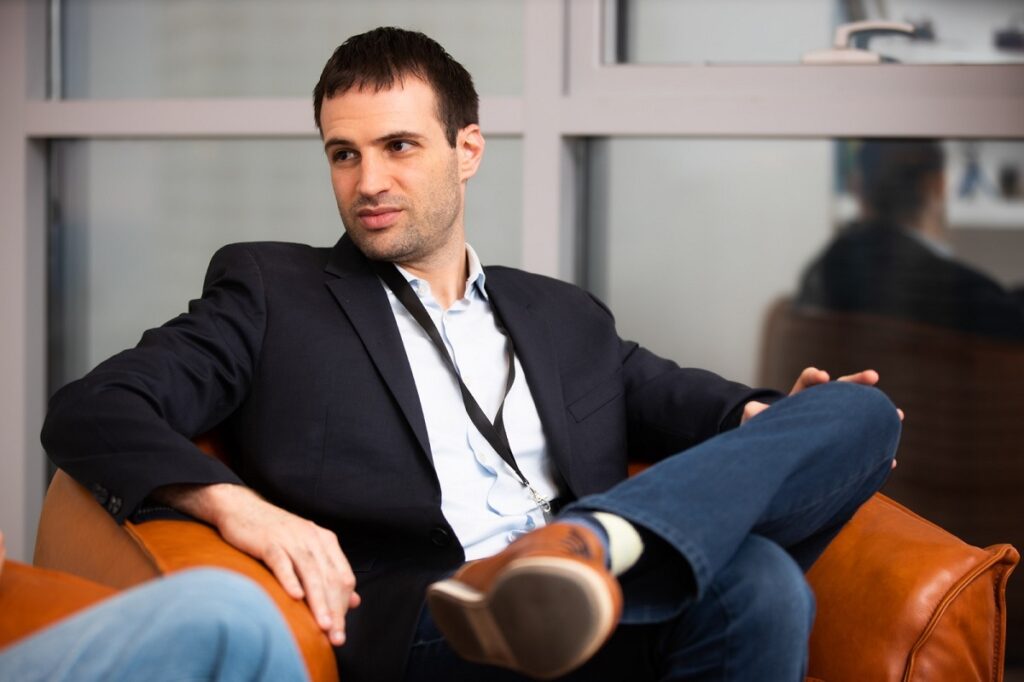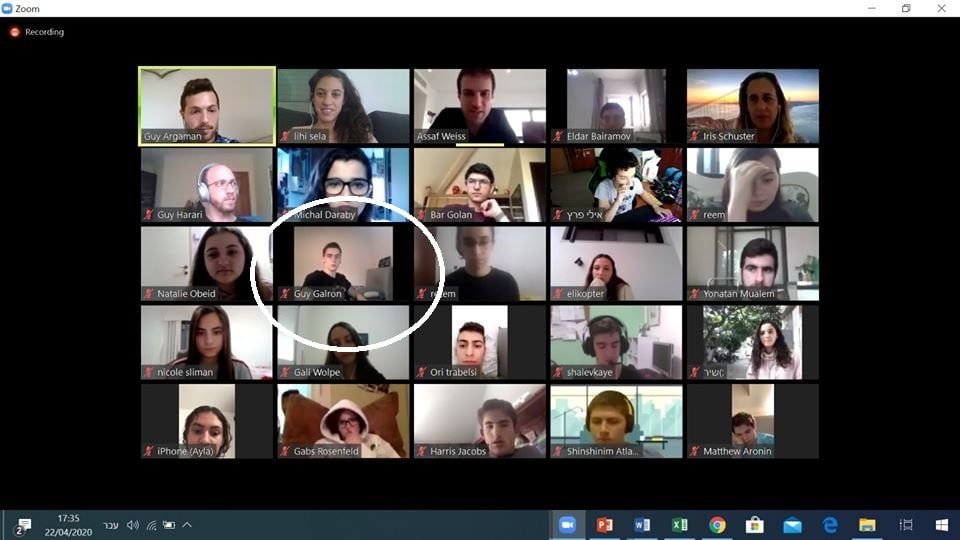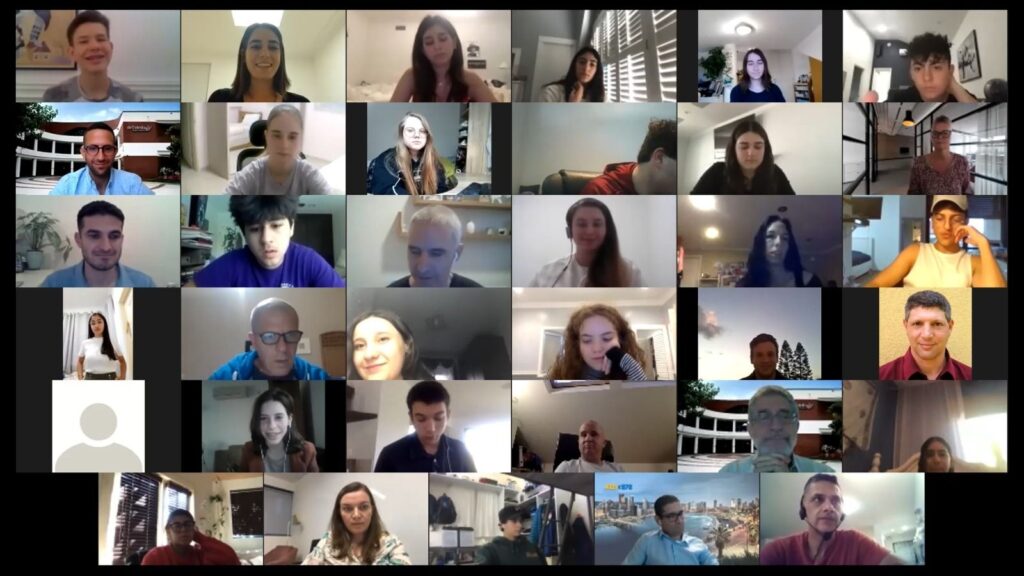In January, Israeli non-profit Unistream was selected by the Ministry of Education and the Israel Innovation Authority to operate a unique new program focused on teenage entrepreneurs in grades 7 through 12 across Israel’s geographic periphery.
Just over a month later, the world would come to a halt as countries tried to grapple with a new pathogen making its way across the world, and taking a toll on global economies and communities. As businesses, government agencies, organizations, universities, and schools had to adapt to more online existences, so did all types of unique activities and programs (including summer camps).
For Unistream, it was no different. Founded by businessman, philanthropist and entrepreneur Rony Zarom in 2001, the organization trains underprivileged Israeli teens and young adults in entrepreneurship and leadership in business and social arenas, catering to 3,500 youth from all of Israel’s communities (Jews, Arabs, Bedouins, Druze) with 21 entrepreneurship centers and 180 groups in 90 localities. The goal is to help them meet their potential and effect change.
And since March, it has had to take the whole program online.
Quarantine tech bootcamp
Unistream CEO Assaf Weiss tells NoCamels that the COVID-19 pandemic in Israel caught many off guard, but Unistream was one of the few organizations to make a smooth transition to online activities.
It was a “huge organizational effort” to teach 3,500 teenagers how to use Zoom in under a month, Weiss says, but the organization succeeded in transferring about 80 percent of the curriculum to an online format. The organization also had a team of employees adjusting and rewriting classes to fit the online platform and made sure that every teen within the program had a computer and the tools to use one.
This year, students in the program had the chance to take part in a unique entrepreneurship initiative with US high school students to develop tech solutions for the coronavirus pandemic as part of a quarantine bootcamp.
The bootcamp included two separate groups of 20 Israeli students with 20 students from de Toledo school in Los Angeles and 20 students from the Weber School in Atlanta, Georgia (through partnerships with the LA and Atlanta Jewish Federations) for a series of five meetings over six weeks. Participants would undergo the entrepreneurship brainstorming process with the aim and intent of developing social ventures that could assist their communities and the global ecosystem at large during the COVID-19 pandemic.
“Every week they had a challenge that they had to solve in smaller groups and the groups were mixed. So basically we had a couple of kids from Israel, with a couple from the US doing a weekly challenge together and solving it and then coming to the big meeting and presenting their challenges,” says Weiss.

The activities took place over the course of two months from April through May.
“We were so successful in that the Ministry of Education here in Israel saw our ability,” says Weiss, “And they actually asked us to assist in training teachers in online learning. So we’ve actually trained hundreds of teachers in online learning, which is something we don’t usually do, but it became a national effort.”
Meetings took place through the Zoom video conferencing platform where students took part in a COVID-19 hackathon, development and presentation of their products, and inspirational lectures with Unistream founder Rony Zarom and other mentors.
Throughout the process, the teen entrepreneurs were mentored by leading businesspeople who volunteered their time, skills, knowledge, and expertise. Mentors included Nir Hertzman, co-founder and VP Manufacturing for FLUX Protocol and Netta Tzin, co-founder and head of product for MySphera, a matchmaker between music artists and content tastemakers, among others.
Sign up for our free weekly newsletter
SubscribeSolutions that emerged from these meetings included an app designed to aid children battling loneliness as their medical professional parents helped COVID-19 patients, a home gardening kit, and a computer rental service for those without the means to afford one.
Student Guy Galron from Hadera, who turns 17 this month, was the head of a seven-person team called Hobbies Hub, which developed a platform that would provide specific guidelines and an organized schedule for learning a new hobby, like dancing or juggling. The platform was created to help people who were quarantined or on lockdown during the pandemic fill up their time in a valuable and satisfying way, Galron tells NoCamels. The platform also includes an option for searching, filtering according to price, interests, and more.
“As part of the business model, we decided that the first five lessons would be free and then the expert providing the guidelines would decide if they wanted to keep it free or charge,” Galron says.

He tells NoCamels that teams were chosen as winners of various categories, including target audience, market potential, and business model. Hobbies Hub won for Best Market Potential.
While Galron was very active in the quarantine bootcamp he also took part in a separate project to develop another tech product since he first joined Unistream three years ago in 2017. The first year was the brainstorming aspect of the project, he explains, while the second year focused on developing the first prototype. During the third year of the project, Galron and his team worked on marketing the product. At the end of the year, as with the Hobbies Hub tech solution, Galron and his team had to present the product to a room of peers, mentors, and entrepreneurs.
SEE ALSO: Want To Donate But Unsure Where To Start? 10 Charities, Causes Doing Life-Changing Work In Israel
“Doing this project with Unistream really helped me,” Galron tells NoCamels. “When you do a presentation in front of people, your self-esteem really grows and gets better. I also learned how to work with people and find solutions to problems. I learned that I really love it.”
Shaping future entrepreneurs
“For the last 19 years, Unistream has been working to close the socioeconomic gap between the center of Israel and social and geographical periphery,” Weiss tells NoCamels.
With the backing of the Israel Innovation Authority and the Education Ministry, the organization will now work with a budget of NIS 10 million (almost $3 million) over the next five years.
Some 120 new entrepreneurial groups are expected to be established each year in dozens of local municipalities across Israel with an emphasis on minority populations and areas in the periphery. Youth from the ultra-Orthodox, Bedouin, and Druze communities, along with at-risk-youth and others will also be integrated into the program.
Participants in the program will receive assistance and backing to transform their tech ideas into commercial products and will work with key figures from the Israeli high-tech industry, academia, and other frameworks such as incubators and innovation labs to develop their ideas.
Related posts

Editors’ & Readers’ Choice: 10 Favorite NoCamels Articles

Forward Facing: What Does The Future Hold For Israeli High-Tech?

Impact Innovation: Israeli Startups That Could Shape Our Future




Facebook comments